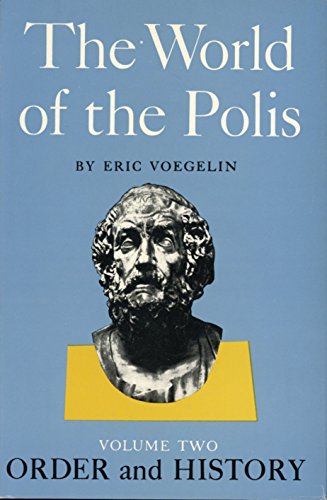
The abstract of the essay On Being is a
priceless document because it has preserved one of the earliest, if not the
very first, instance of the perennial type of enlightened philosophizing. The
thinker operates on symbols that have been developed by mystic-philosophers for
the expression of experiences of transcendence.
He proceeds by ignoring the
experiential basis, separates the symbols from this basis as if they had a
meaning independent of the experience which they express, and with brilliant logic
shows, what every philosopher knows, that they will lead to contradictions if
they are misunderstood as propositions about objects in world-immanent
experience. Gorgias [an early Sophist who disputed with Plato's teacher, Socrates] applied his acumen to the Parmenidean Being; but the same
type of argument could be applied to other symbols of transcendence, and the
set of three propositions about the gods are probably the summary of such an
argument.
If we assume the Gorgian tract
to be representative of the sophistic attitude toward problems of
transcendence, and if, furthermore, we define enlightenment by the type of
philosophizing just characterized, we can arrive at some clearness with regard
to the question whether the sophistic age can justly be labelled an age of
enlightenment. We may say that the age indeed has a streak of enlightenment in
so far as its representative thinkers show the same kind of insensitiveness
toward experiences of transcendence that was characteristic of the
Enlightenment of the eighteenth century A.D., and in so far as this
insensitiveness has the same result of destroying philosophy — for philosophy
by definition has its center in the experiences of transcendence.
Moreover, the
essentially unphilosophical character of sophistic writings may have been the
most important cause of their almost complete disappearance in spite of the impressive
collection and organization of materials which they must have contained. For
the materials could be taken over by later writers and, stripped of the
materials, the writings held no interest for philosophers. And, finally, we can
understand more clearly why Plato concentrated the essence of his own
philosophizing in an emphatic counter-formula to the Protagorean homo mensura [“Man
is the measure of all things”]. After the destruction of philosophy through the
sophists, its reconstruction had to stress the Deus mensura [“God is the
measure of all things”] of the philosophers; and the new philosophy had to be
clearly a "type of theology." [as Plato formulated it in The
Republic; indeed Plato coined the word itself, “theology”].
Eric Voegelin
Order and History, volume 2
p. 275
7 comments:
'Judaeo-Christian' is a term used principally by the enemies of Western Civilisation; 'Judaism', which has been based on the Mishnah and Gemarra, out of which grew the Talmud, for over two thousand years, rejects the Mosaic Law which included the Ten Commandments, the Jews' main 'claim' to be part of Western Civilisation.
The problem is that, even IF Jews did follow the Ten Commandments, the Talmud defines and disparages non-Jews as 'non-humans.'
So, thou shalt not steal (from humans) would be a problem for non-Jews where Jews deny the fundamental humanity of non-Jews for the purpose of enforcing the rule of law.
Read Eric Voegelin's first volume -- Israel and Revelation -- of the above-referenced series for the reasons why to include "Judaeo". This also assumes that one doesn't have to fuse inter-testamental + medieval Judaism with Israel to still use the prefix "Judaeo-". In a Voegelinian sense, inter-testamental + medieval Judaism would reflect a philosophical retardation of the advancement in differentiation represented by Christianity.
Correction: Voegelin
If the Jews' 'West' were truly the same as the white Christian West, then there would have been a negligible difference through the ages - and also now - when Jews were allowed and enabled to assume ever increasing numbers of power positions in the West.
But, the more power that Jews accrue, the more obvious it is that the Jews fully intend to destroy ALL salient features of the white Christian West.
The honest question: Do Jews dream dreams, set goals, and produce outcomes that support and benefit white Christian Westerners in the Jewish non-West?!
The people are expected to hold the rulers to account for their failures.
By all rights, white Western Christians should question now ruling Western Jews about their abject failure to provide spiritual, intellectual, economic, and physical safety for white Western Christians - especially given the current catastrophic situation of Middle Eastern Christians.
These two articles are interesting:
http://www.crisismagazine.com/1990/the-new-gnosticism-the-philosopher-eric-voegelin-finds-an-old-christian-heresy-to-be-very-much-alive
http://www.crisismagazine.com/2016/christians-blamed-islamic-terrorism
Post a Comment